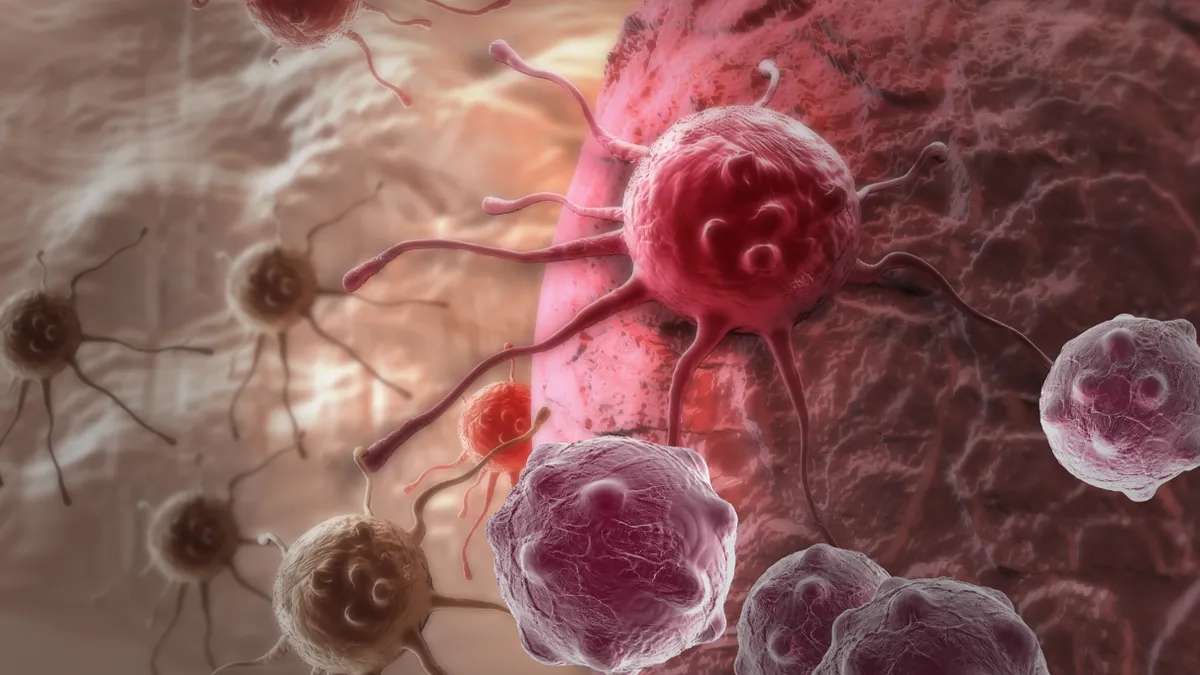Dive Brief:
- Exact Sciences has released results from a study of the updated Cologuard test it is developing to cement its position in the colorectal cancer screening market.
- The study, which Exact Sciences designed to mimic its ongoing pivotal trial, found Cologuard 2.0 has a lower false positive rate than the current product and is better at detecting precancerous lesions.
- Analysts at Craig-Hallum viewed the results positively, while noting that the test may perform worse in the pivotal clinical trial and warning that readouts on liquid biopsies in development at Freenome and Guardant Health are a threat to Exact's stool-based product.
Dive Insight:
Exact Sciences continued working with its collaborators at Mayo Clinic after developing the first version of Cologuard, leading to the discovery of dozens of potential biomarkers of colorectal cancer. The teams whittled the biomarkers down to four methylation markers and fecal hemoglobin. Exact picked the markers in the belief they can improve specificity and pre-cancer sensitivity, without reducing cancer sensitivity, compared to the current iteration of Cologuard.
A pivotal clinical trial could conclusively show whether Exact Sciences has met those objectives when it reads out around the end of the year. Ahead of the readout, Exact and Mayo Clinic applied the test to a subset of samples from the pivotal DeeP-C clinical trial of the first-generation Cologuard. While noting the limitations of the approach, Exact's Scott Johnson, senior vice president for R&D, argued the results have value.
"Anytime you do a case control study, there are limitations relative to what you expect to see in a prospective setting. However, this study was specifically designed to mimic the distribution of stages and sizes of lesions that we saw in DeeP-C. That's one way of mitigating against any delta that you would see from a case control to a prospective setting," Johnson said on a webcast.
The study linked Cologuard 2.0 to a sensitivity of 95% and specificity of 92%, up respectively from 92% and 87% in DeeP-C. Sensitivity in all advanced adenomas rose from 42% to 57%, offering encouragement that Cologuard 2.0 can detect precancerous lesions.
Speaking on the webcast, Dr. John Kisiel, a Mayo Clinic gastroenterologist who worked with Exact Sciences on the study, set out the potential real-world importance of the increased advanced adenoma sensitivity.
"Screening tests that don't detect precancerous lesions don't prevent cancer from happening," Kisiel said. "Many of them can maybe make the cancers that they find more treatable, but it's really by detecting precancerous lesions, especially the advanced ones, and by removing those lesions that we actually prevent the cancer from happening in the first place."
The findings offer encouragement for Exact Sciences as it moves toward the delivery of data from a pivotal trial of Cologuard 2.0, which is expected late this or early next year. The readout could support a filing for FDA approval of a product Exact sees as a way to grow revenues and reduce cost of goods sold. Yet, as analysts at Craig-Hallum pointed out, it is possible Cologuard 2.0 will be overshadowed by rival blood tests.
"We note that colorectal cancer screening is heating up in 2022, with three large pivotal trials reading out. EXAS is continuing to defend its fecal approach, while [Guardant] and Freenome (private) are both vying for a potentially easier to use, but more frequent (once-per-year) blood test. A real risk in 2022 for EXAS is positive data from either [Guardant] or Freenome via blood, which could potentially cap Cologuard Fecal's penetration," the analysts wrote in a Wednesday note to investors.










